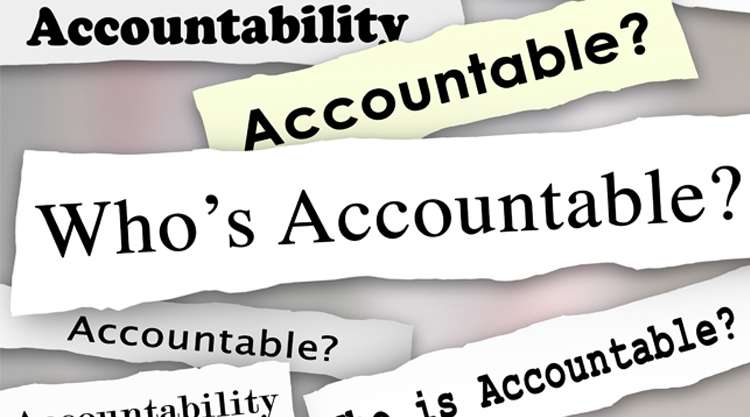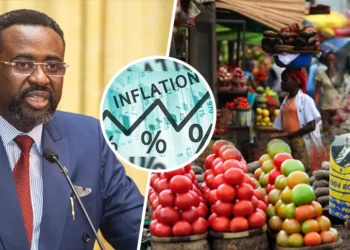Ghana’s proposed increase in the Energy Levy has reignited intense debate over the sustainability and integrity of the country’s energy sector.
Professor Stephen Kwaku Asare, a legal scholar and public interest advocate, has called on the government to pair the new levy with sweeping reforms and meaningful accountability measures to ensure it doesn’t become just another tax burden for ordinary citizens.
According to Prof. Asare, Ghana’s energy sector is once again at a critical tipping point. He highlighted a mounting debt of $3.1 billion, depleted financial guarantees, and an ever-increasing reliance on thermal power as warning signs that the sector is heading for collapse.
In response, the government has proposed an amendment to the Energy Sector Levies Act (2025), which would significantly increase the Energy Sector Shortfall and Debt Repayment Levy.
“The rationale is clear: First, we must restore exhausted guarantees—$512 million from the World Bank and $120 million from GNPC—that were fully drawn due to unpaid bills.
“Second, we face a massive shortfall because the cost of thermal fuel is excluded from electricity tariffs. Including it would spike tariffs by over 50%. Third, the government needs at least $1.2 billion this year alone to fuel thermal plants and avoid power outages.”
Professor Stephen Kwaku Asare

Prof. Asare acknowledged that the Energy Levy, if implemented properly, could offer short-term relief.
By securing the funds necessary to fuel power plants, the government can stabilize electricity supply, avoid drastic tariff hikes, and potentially rebuild financial credibility by reinstating key guarantees.
Additionally, he noted that gains from foreign exchange could help prevent increases in the ex-pump price of petrol and diesel, a factor that would offer some relief to consumers.
Citizens Demand Accountability First
However, Prof. Asare was equally critical of the measure’s weaknesses. He pointed out that the levy would immediately reduce consumer purchasing power—for example, ₵400 would buy 2.35 liters less fuel than before.
This financial pressure would be particularly harsh on low-income households and small businesses, risking a regressive effect on the wider economy.
More troubling, he argued, is the absence of a comprehensive accountability framework. “A levy without accountability is a bailout for failure,” he warned.

“One may support or oppose the levy, but what’s indisputable is that a critical pillar is missing. That is where GOGO chooses to focus: the Missing Pillar: Accountability.
“A levy without accountability is a bailout for failure. This crisis didn’t appear overnight. It is the result of: Inflated contracts and procurement abuse; Weak financial discipline among SOEs; Misuse of previous energy levies; and Neglect of Auditor-General and PURC warnings.”
Professor Stephen Kwaku Asare
Without holding anyone accountable, the public may view this latest Energy Levy as yet another tax to protect political elites and mismanaged institutions.
For any measure to gain public trust, Prof. Asare insisted, it must be accompanied by bold reforms focused on justice, transparency, and structural efficiency.
He laid out a multi-pronged approach, beginning with a forensic audit of the past decade of energy spending. This would identify where funds were misused and allow for the prosecution of both public officials and private contractors implicated in wrongdoing.
Additionally, stolen funds should be recovered, and corrupt suppliers barred from receiving future contracts.
Narrowing to the usage front, he emphasized the need to ring-fence levy proceeds strictly for fuel procurement and debt servicing.
Quarterly public reporting should be mandated, detailing collections and expenditures, while performance metrics must be established for all energy-related SOEs. These steps would provide transparency and create a framework for measuring success.
No Reform, No Justification for Energy Levy
Prof. Asare also called for deeper structural reforms. He advocated for gradual but consistent revisions to electricity tariffs that reflect the actual cost of generation, renegotiation of predatory Independent Power Producer (IPP) contracts, and accelerated investment in renewable and hydroelectric energy to reduce dependence on imported fuel.
Focusing on fiscal measures, he suggested that the Energy Levy be implemented with a clear expiration timeline and be subject to routine evaluations to determine its overall impact and effectiveness.
Clear targets must be set, such as measurable reductions in arrears and improved benchmarks for fuel procurement. Annual impact reports should be published to account for how much revenue was collected, how it was used, and what outcomes it achieved.

To prevent misuse, he argued, off-book diversions must be explicitly prohibited. The levy, he indicated, should require parliamentary reauthorization every two years to guard against silent extensions or its transformation into a permanent fixture.
According to him, any proposed increase in the levy should also be justified with audited results.
Prof. Asare concluded that while the Energy Levy might be necessary under the current fiscal constraints, it alone is not sufficient.
He warned Ghanaians cannot be expected to “tighten our belts while those who caused the looseness go free.”
The moment demands more than revenue generation. It calls for integrity, reform, and fiscal discipline.
“We cannot levy our way out of inefficiency. And we cannot fix a broken system by pouring money into it without fixing what broke it.”
Professor Stephen Kwaku Asare
He urged that this be the last time Ghanaians are asked to pay for energy sector failure—and the first time those responsible are held accountable.
READ ALSO: GoldBod Pledges Full Traceability of Gold to Curb Illegally Mined Gold


















